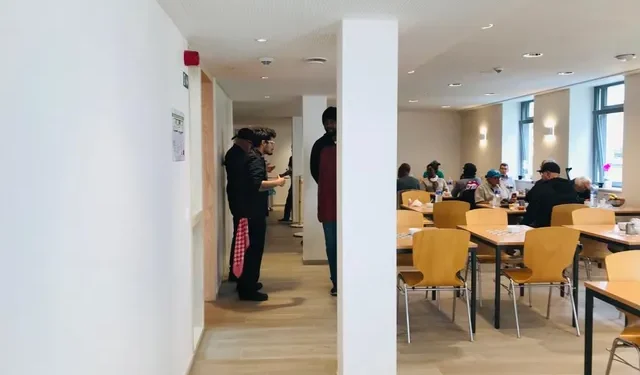Some Brussels municipalities do nothing to accommodate the homeless, while centrally located municipalities groan under the pressure. This is evident from figures about the reception capacity that Brussels MP Els Rochette (Vooruit.brussels) requested from ministers Elke Van den Brandt (Green) and Alain Maron (Ecolo), jointly responsible for Welfare and Health.
The distribution of recognized emergency shelters, for example for temporary night shelter, already gives an indication of the imbalance. Only five of the nineteen Brussels municipalities have one: Anderlecht (440 emergency shelters), Auderghem (250), Brussels City (148), Schaerbeek (89) and Vorst (35).
The recognized daytime care centers are also spread over just five municipalities: Anderlecht, Ixelles, Jette, Sint-Gillis and Brussels City.
Low dispersion
Uccle, although the richest municipality in Brussels, is nowhere to be found in the lists. “That in itself is not illogical,” says MP Rochette. “Homeless people who have spent the night in the Samusocial shelter in Anderlecht do not take the tram to drink soup in the afternoon in a day center in Uccle. They usually do not have a STIB subscription either.” This limited mobility leads to cluster formation, with homeless people hanging out on the street with their acquaintances during the day, causing nuisance to some neighborhoods, while in other neighborhoods in Brussels there is no homeless person to be found.
“In general, homeless people are more likely to be found in city centers,” Van den Brandt and Maron also write in their parliamentary answer. “Due to their location and function, urban centers facilitate access to certain resources (food, money, places to rest and sleep) and guarantee anonymity and little social control. These sociological findings partly explain the overrepresentation of emergency shelters and integration places in the centrally located municipalities of the Brussels Region.”
However, according to Rochette, there are certainly possibilities to achieve a better distribution. “A day center may not make much sense in Uccle, but a reception house that accommodates homeless people over several months would be perfect there. Other municipalities must also do their part than the current one with reception centres. That is why I argue for organizing this at regional level so that financial or logistical solidarity can arise between the Brussels municipalities.”
This article is originally published on bruzz.be




